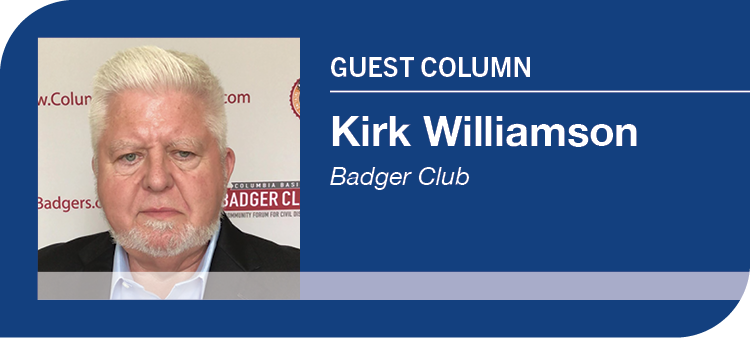
Home » Badger Club debates merits of taxing carbon to spur economic recovery
Badger Club debates merits of taxing carbon to spur economic recovery

February 16, 2021
Washington state is facing a precarious fiscal future.
The Columbia Basin Badger Club will discuss a carbon tax plan that is working its way through the 2021 Legislature at its monthly gathering, which will be held Feb. 18 via Zoom.
The challenge: Unemployment remains high and the latest revenue forecast projects a state budget shortfall of $3.3 billion through 2023, smaller than projected in early 2020. The impacts of climate change in Washington are expected to increase costs.
A proposed solution: Since the state is required by its Constitution to have a balanced budget, this budget shortfall could mean drastically reducing expenditures on everything from roads and other needed infrastructure to schools – K-12 to post-high school. Or we could increase revenue by stimulating the economy or by increasing tax rates.
Last year our state Legislature passed a law increasing our targets for reducing carbon emissions. Gov. Jay Inslee and President Joe Biden are pushing hard for a transition to carbon neutrality as one way to address the climate crisis.
Opponents argue that this will cost jobs and slow recovery.
This year, the Legislature is considering Washington STRONG (SB 5373), an economic recovery bond program backed by an economy-wide price on carbon pollution.
SB 5373 was referred to the Senate Environment, Energy & Technology committee after the first reading on
Jan. 28. The bill is sponsored by Sens. Liz Lovelett, Rebecca Saldaña, Mona Das, Manka Dhingra, David Frockt, Sam Hunt, Patty Kuderer, Joe Nguyen, Jamie Pedersen, Jesse Salomon, Derek Stanford, Lisa Wellman and Claire Wilson, all Democrats.
Proponents say bond revenue would address both the budget shortfall and economic recovery by investing in communities across the state for a strong recovery.
Carbon Washington, one of several groups promoting the idea, argues that it is a market-driven approach that also would accelerate innovation and help us achieve the goal of a carbon neutral energy economy.
That is the position of Doug Ray, chairman of Carbon Washington’s Board of Directors, and a member of the Citizens’ Climate Lobby. He is a recognized authority on decarbonizing the global energy system and the environmental consequences of energy production and use.
But Todd Myers, environmental director at the Washington Policy Center, believes that may not be the best way to achieve the goal of a carbon-free economy by mid-century.
WPC is a market-oriented think tank in Seattle and is recognized as a national leader on free-market environmental policy.
Myers serves on the board of two national center-right environmental organizations, the American Conservation Coalition, an environmental advocacy organization that works to engage youth on conservation and environmental stewardship, and ConservAmerica, a group dedicated to habitat and wildlife conservation.
The Badger Forum is at noon Feb. 18 on Zoom. Admission is $5. Badger Club members pay nothing. Please read and follow the two-step registration process. Go to bit.ly/ColumbiaBasinBadgerClub.
Kirk Williamson is president of the Columbia Basin Badger Club, a civic discussion forum that meets monthly in Richland. It is meeting online during the pandemic.
Opinion
KEYWORDS february 2021





